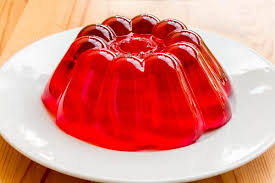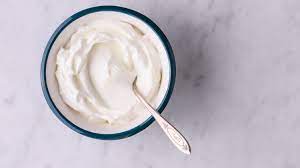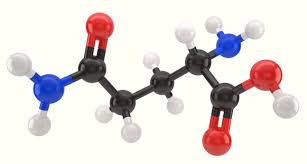Content of the Article
Collagen is the most abundant protein in our body. Collagen has benefits in our body, such as providing structure to our skin and helping blood clot. It is used in products such as shampoo, body lotion, nutritional supplement.

What is Collagen?
It is the most abundant protein in our body, making up about a third of the protein composition. It is one of the main building blocks of bones, skin, muscles, tendons and ligaments. It is also found in many other body parts such as blood vessels, cornea, and teeth. We can think of collagen as the glue that holds it all together. The origin of the word collagen comes from the Greek word “kólla” meaning glue.
Collagen Types
There are at least 16 types of collagen. Four main types; types are I, II, III and IV. The roles of these four main types of collagen in our body are:
- Type I Collagen: This type makes up 90% of body collagen and is made of dense fibers. It provides structure to skin, bones, tendons, fibrous cartilage, connective tissue and teeth.
- Type II Collagen: This type is made from loosely attached fibers and is found in joints and cartilage.
- Type III Collagen: This type supports the structure of muscles, organs and arteries.
- Type IV Collagen: This type helps with filtration and is found in the layers of the skin.
As we age, our bodies produce less and lower quality collagen. One of the visible signs of this is that our skin loses its elasticity and hardens. Cartilage also weakens with age.
Benefits of Collagen

- Strengthens bones
As we age, our bones decrease in density and become more fragile. It takes a long time to heal. Some research has determined that taking a daily collagen supplement can help make bones denser and help the body produce new bone.
- Moisturizes and gives elasticity to the skin
One of the benefits of collagen is that it moisturizes the skin. Taking collagen supplements moisturizes the skin and gives it elasticity. It also reduces wrinkles.
- Thickens hair
The common problem of women and men is that hair loss increases as they age. In one study, a group of women with thinning hair experienced significant increases in the amount and thickness of their hair while taking daily collagen supplements.
- Protects nails
Some people's nails break more easily than others. A study of a group of women found that after 4 weeks of daily collagen supplementation, their nails grew faster and their nail breakage decreased.
- Reduces osteoarthritis pain
One of the benefits of collagen is that it takes on the task of reducing pain. For people with knee osteoarthritis, taking collagen supplements acts as a mild pain reliever and improves the function of the joints.
- Increases muscle mass
One small study found that men who took collagen peptide supplements during a 12-week strength training program experienced greater increases in muscle mass and strength than those who did not.
- Improves heart health
Collagen helps maintain the shape of arteries and blood vessels. When there is a lack of collagen, the arteries can weaken. This increases the risk of atherosclerosis, which can lead to heart attack or stroke. A small study in healthy people found that collagen supplementation kept arteries healthier and reduced the risk of atherosclerosis.

Collagen Producing Foods
Collagen starts out as procollagen. Our body makes procollagen by combining two amino acids; These amino acids glycine and proline. During this process C vitamin uses. When we eat plenty of the following foods, we can help our bodies produce this important protein:
- C vitamin: CitrusIt is found in large quantities in peppers and strawberries.
- Proline: Egg white, Wheat seed, dairy products, cabbage, asparagus, and mushrooms in large quantities.
- Glycine: It is found in large quantities in chicken skin and gelatin.
- Copper: A lot offal, found in sesame, cocoa powder, cashews and lentils.
Additionally, our bodies need high-quality protein that contains the amino acids needed to make new proteins. Meat, poultry, seafood, dairy products, legumes, and tofu are excellent sources of amino acids.
Factors Causing Collagen Decrease
Some conditions lead to decreased production of collagen produced in the body. Factors that cause a decrease in collagen production are as follows;
- Sugar and refined carbohydrates: Sugar interferes with collagen's ability to repair itself. For this reason, it is necessary to minimize the consumption of sugar and refined carbohydrates so that its production is not interrupted.
- Too much sunlight: Ultraviolet radiation reduces collagen production. Excessive sunlight should be avoided.
- To smoke: Smoking also reduces collagen production. This impairs wound healing and leads to wrinkles.
Some autoimmune disorders, such as lupus, also impair collagen production.

Foods Containing Collagen
Collagen is found in the connective tissues of animal foods. For example, it is found in large quantities in chicken and pork skin. A particularly rich source is bone broth, which is made by boiling the bones of chicken and other animals. Gelatin is basically cooked collagen. It is therefore very high in amino acids required to produce it. Foods containing collagen are:
- Bone juice
This process, made by boiling animal bones in water, reveals collagen.
- Chicken
Many collagen supplements are derived from chicken. Everyone's favorite white meat contains plenty of collagen.
- Fish and shellfish
Like other animals, fish and shellfishIt also has bones and ligaments made of collagen. Marine collagen is thought to be one of the most easily absorbed.
- Egg white
Although eggs do not contain connective tissue like many other animal foods, egg white It provides a large amount of proline, one of the essential amino acids for collagen production.
- Citrus
Vitamin C plays an important role in the body's production of procollagen, the precursor of collagen. Therefore, getting enough vitamin C is critical. OrangeCitrus fruits such as grapefruit and lemon contain plenty of vitamin C.
- Berry fruits
Although citrus fruits are thought to have higher vitamin C content, berry fruits are also excellent sources. Strawberry it actually provides more vitamin C than oranges. Raspberries, blueberries, and blackberries also contain high levels of vitamin C.
-
Tropical fruits
Vitamin C-rich fruits include tropical fruits such as mango, kiwi, pineapple, and guava. Guava it also contains small amounts of zinc, another common factor for collagen production.
- Garlic
GarlicIncreases collagen production. Because it contains a high amount of sulfur that provides it.
- Green leafy vegetables
Green leafy vegetablesIt gets its color from chlorophyll, which is known for its antioxidant properties. Some studies have shown that consuming chlorophyll increases procollagen, the precursor of collagen in the skin.
- Beans
Beans are a high protein food that contains amino acids necessary for collagen synthesis. Also, many of them are essential for the production of collagen, another nutrient. Virgin rich in terms.
- Cashew nuts
Cashews contain zinc and copper, both of which increase the body's ability to form collagen.
- Tomato
Another hidden source of vitamin C, tomatoes provide almost 30 percent of this important nutrient. Tomatoes are also in strong quantity, essential for skin support. lycopene It has antioxidants.
- Beaver
Pepper contains high levels of vitamin C. In addition to supporting collagen production, its capsaicin and anti-inflammatory compound content fight the signs of aging.
Harms of Collagen
Potential side effects of collagen supplements include a persistent and unpleasant aftertaste and heartburn sensation in the mouth. You may also develop an allergic reaction if you are allergic to the source of the supplement.
Usage Areas of Collagen
Collagen has many uses, from food to medicine to manufacturing. For thousands of years, collagen has been used to create glue. It is still used today to form strings for musical instruments.
Collagen in foods, It is heated to form gelatin and used in sausages. It is used as a filler in plastic surgery in the medical field and as a dressing for severe burns.

What Is Bovine Collagen?
Bovine collagen is a form of this protein mainly derived from cows. Collagen is naturally produced by our body, but it can also be obtained from foods and supplements.
Most supplements are derived from a variety of animal and plant sources, the most common being marine species such as cattle, pork, fish, jellyfish, and sponges. Less common sources include genetically modified yeast and bacteria.
Cattle species include yak, antelope, bison, buffalo and cows – but bovine collagen is primarily derived from cows. To do this, cow bones or other beef by-products are boiled in water. After the collagen is extracted, it is dried and pulverized to form a supplement.
Bovine collagen or fish collagen?
There are 16 types of collagen in our body, each with a specific role. The main types are I, II, III and IV. Collagen supplements provide different types depending on their source.
Bovine collagen has been found to increase types I and III, while fish collagen has been found to increase types I and II.
Collagen in the skin is primarily composed of type I and III collagen. So bovine collagen is particularly useful for reducing wrinkles, increasing elasticity and increasing skin moisture.
Fish collagen improves cartilage and skin health. Some studies show it has a lower risk of disease transmission, has less inflammatory effects, and has a higher absorption rate than bovine collagen.
Fish collagen is new. But research indicates promising health benefits for bone tissue regeneration, anti-wrinkle effects, protection from UV radiation, and wound healing.

Bovine Collagen Benefits
- Bovine collagen supplements help counter the effects of low collagen levels.
- Relieves symptoms of osteoarthritis.
- Reduces visible signs of aging.
- It prevents bone loss.
What is Collagen Deficiency?
Collagen deficiency causes various changes in the body. Although it is a naturally occurring protein, it should sometimes be used as an external supplement.
Collagen plays a very important role in the functioning of the human body. The composition of bones, cartilage, muscles, tendons and ligaments includes collagen. It is collagen that is responsible for their strength and uninterrupted work. In other words, collagen is a special adhesive protein that acts as connective tissue for all organs.
Collagen is found in the meat, bones and skin of animals. Helps strengthen body tissue and hold it together.
Collagen is also abundant in our skin, which makes it supple and tight. However, as we age, the collagen production process weakens and first manifests itself in the condition of the skin. Collagen deficiency is the main cause of skin aging. The skin loses its elasticity, the upper layer becomes thinner, dryness occurs, and as a result, the first wrinkles appear.
Collagen Deficiency Symptoms
- Joint pains in the body
- Breakage of hair and nails
- slowing down movements
- Sunken image in both face and eyes
- bleeding gums
- Wrinkles on the skin surface
- Cellulite onset or development
- Bruises on certain parts of the body
- Nose bleeding
- Extreme weakness and fatigue
Along with these, joints, cartilage and tendons adversely affect the ligaments. Changes in the appearance of the skin are clearly visible. These symptoms are mainly manifested on the skin:
- Disruption of the skin's moisture balance
- Dryness and sagging of the skin
- Wrinkling in certain areas of the skin
- Color and tone unevenness in the skin
- Delayed healing of the skin in cases of burns, cuts or abrasions
- Persistent pallor of the skin
- Crow's feet formation
In addition to these, the changes caused by collagen deficiency in joints, cartilage and ligaments are as follows:
- Noticeable reduction in muscle mass
- Too late healing of sports injuries
- Weakening of the bone structure
- Cartilage tissue wear and tear
- Joint pain during movement

Collagen Deficiency Treatment
In general, hair and nails are damaged first in collagen deficiency. Hair growth stops and hair loss increases. Nails begin to peel and break very easily. Collagen supplementation is needed to avoid such problems. If it cannot be obtained naturally, it is useful to support the production of collagen with nutrients that strengthen it from the outside.
In general, according to scientific research C vitamin Supports collagen production. Citrus fruits, kiwi, peppers, rose hips, potatoes, cabbage, tomatoes, green onions and parsley are foods rich in vitamin C.










